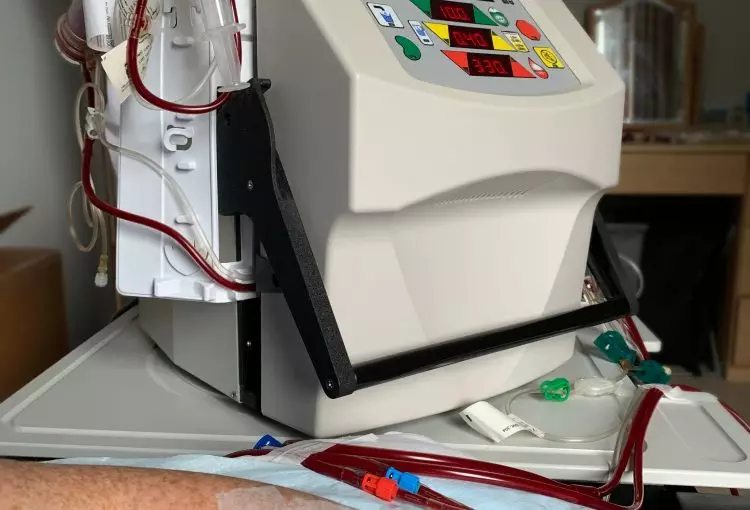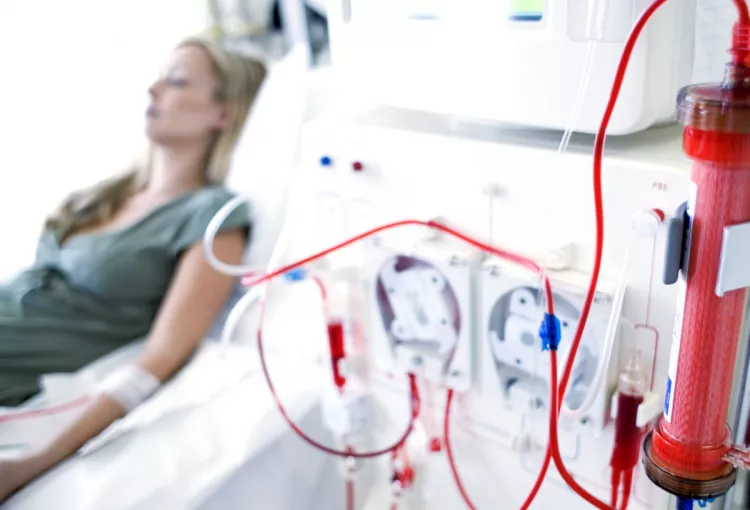Types of Dialysis: Which One Is Right for You?
Managing end-stage kidney disease (ESKD), also called end-stage renal disease (ESRD), usually involves choosing the most effective dialysis treatment option that is best suited to the individual patient’s lifestyle and preferences. Three commonly used modalities are home hemodialysis (HHD), institutional or in-center hemodialysis (IHD), and peritoneal dialysis (PD). Each approach has unique features, as well as potential drawbacks. Keep reading to learn the highlights of the three most common dialysis methods.
Home hemodialysis
HHD is conducted in your (the patient’s) place of residence, providing you with a familiar and comfortable environment. If choosing HHD, you will need to receive comprehensive training and guidance to perform the procedure independently or with assistance from a caregiver, usually a family member.
- Frequency and duration. HHD offers flexibility in treatment scheduling, allowing for more frequent sessions. You’d typically undergo treatments 4-7 days a week, with each session lasting 2-4 hours.
- Independence and control. You’d have greater independence over scheduling your treatments and incorporating them into your daily life.
- Equipment and space. To accommodate HHD, you’d need a hemodialysis machine, a water treatment system, and a designated space that meets specific safety and sanitation standards.
Benefits of HHD include better fluid and waste removal due to more frequent sessions, and a reduced need to travel to a dialysis center. A potential drawback is the ongoing need for equipment maintenance, and your taking on the responsibility for strict treatment adherence.

In-center hemodialysis
IHD is typically administered at specialized dialysis centers or within hospital settings. You would need to commute to one of these facilities for your scheduled sessions.
- Frequency and duration. Sessions are usually conducted 3 times a week, with each session spanning 3-4 hours. This regimen offers less frequency compared to HHD.
- Professional supervision. Specially-trained nurses and technicians oversee your treatments. Immediate medical assistance is readily available in case of any complications.
- Equipment and resources. Dialysis centers can ensure treatment quality and safety.
- Social interaction. IHD provides you the opportunity to interact with fellow dialysis recipients during your sessions. This can provide emotional support and help alleviate feelings of loneliness and isolation.
Benefits of IHD include highly-skilled medical staff and access to advanced medical resources and emergency care if required. Potential drawbacks include limited flexibility in treatment schedules, and the need for regular travel to the dialysis center.

Peritoneal dialysis
PD takes place in your home. You and a caregiver would be trained to perform the procedure.
- Frequency and duration. You can opt for daily PD, including treatments while you sleep. Overnight sessions generally last 8-10 hours, followed by a shorter daytime exchange.
- Independence and convenience. PD offers more flexibility in your daily routine, and enables you to work or travel with greater ease, eliminating the need for trips to a dialysis center.
- Equipment and supplies. PD requires that you either get a dialysis machine (cycler) or perform manual exchanges using bags of dialysis fluid (called dialysate). Supplies would be delivered to your doorstep.
Benefits of PD include more gentle fluid and waste removal, and minimized disruption to your daily life. A potential drawback is an increased risk of hospitalization from infection, and the need for more careful attention to hygiene.
Stay ahead of your CKD
Responsum for CKD empowers people with kidney disease through community, knowledge, and shared experiences
Which method is right for you?
In selecting the right dialysis modality for you, you might want to consider the following factors:
- HHD and PD:
- Might be more suitable for patients with fewer medical complications and overall better health
- Offer greater independence and flexibility,
- Can provide better clearance of waste and fluids
- Require appropriate space and support for the equipment and supplies
- IHD sessions:
- May be necessary for patients with complex medical needs or those requiring intensive monitoring
- May be more appropriate for those who prefer professional oversight and social interaction during treatment
- Provide all necessary equipment and staff
- Are less frequent, but longer, than HHD sessions
Work closely with your doctor to determine the most appropriate treatment option for you, based on your individual needs and preferences. Ask questions, and educate yourself using a variety of resources in order to make informed decisions concerning your care.


